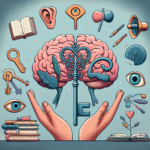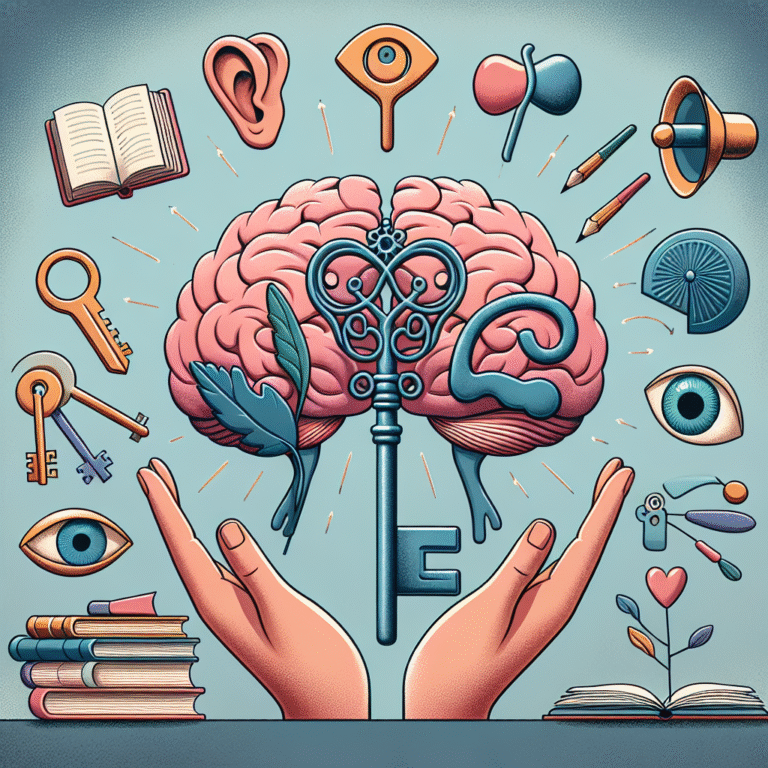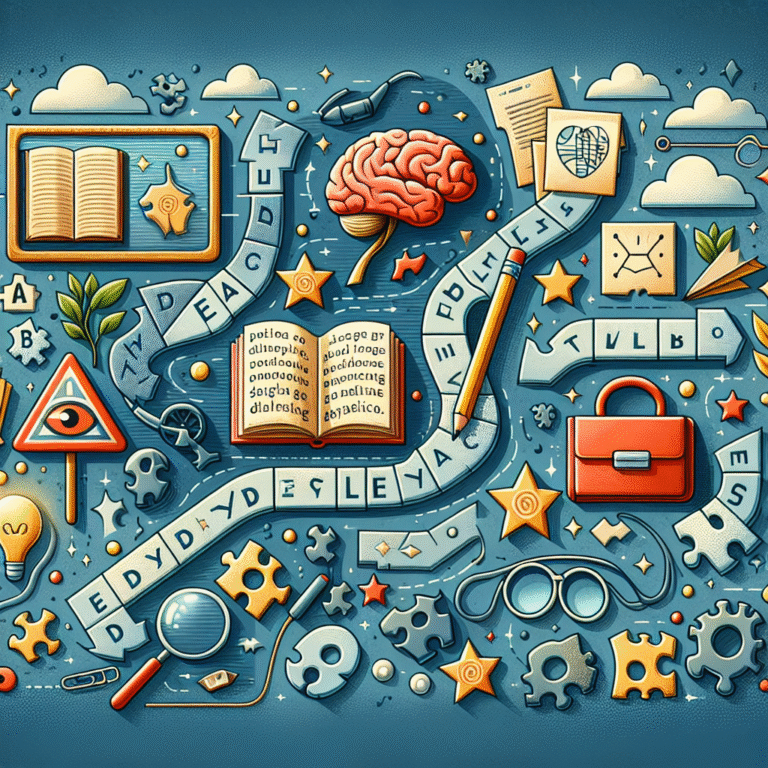
Breaking the Stigma: Understanding Learning Disabilities in Adulthood – The Ultimate Guide
Introduction
Imagine being a proud graduate, standing on the brink of a successful career, only to continue struggling with seemingly simple tasks like reading comprehensively or completing reports on time. Sadly, this scenario is all too common for adults living with learning disabilities. Despite the myths and misconceptions, learning disabilities are not merely childhood issues; they persist into adulthood, affecting careers, relationships, and self-esteem. Breaking the Stigma: Understanding Learning Disabilities in Adulthood is vital for fostering an inclusive society, empowering those affected, and correcting misconceptions that perpetuate discrimination.
In this article, we will explore the intricacies of learning disabilities in adulthood, shedding light on the challenges faced, the profound impact of stigma, and, importantly, how society can work towards breaking these barriers. With insights from real-world case studies, actionable advice, and the latest data on this topic, we aim to create a comprehensive understanding of what it means to have a learning disability as an adult.
Understanding Learning Disabilities: More Than Just a Childhood Issue
Learning disabilities encompass a variety of neurological disorders that affect the way individuals process information. Contrary to popular belief, they are not indicative of intelligence; instead, they can hinder specific cognitive skills including reading (dyslexia), writing (dysgraphia), and mathematics (dyscalculia).
Case Study: Sarah’s Journey with Dyslexia
Take Sarah, for instance. Diagnosed with dyslexia at an early age, she encountered challenges throughout her educational journey. Teachers often labeled her as "lazy" when she struggled with reading assignments. However, Sarah graduated with honors and secured a management position in a well-known firm. Her story illustrates that with appropriate support and recognition, individuals with learning disabilities can thrive, even in demanding environments.
The Prevalence of Learning Disabilities in Adults
Research indicates that nearly 15% of adults have learning disabilities. This number suggests a significant portion of the population may be navigating personal and professional landscapes while grappling with these conditions.
| Learning Disability | Adult Prevalence (%) |
|---|---|
| Dyslexia | 4-8 |
| Dyscalculia | 3-6 |
| Dysgraphia | 1-2 |
| ADHD | 2-5 |
This table illustrates the estimated prevalence rates for various learning disabilities in adults. The impact of these conditions often remains overshadowed by the societal tendency to view learning disorders as “childhood problems”.
The Distinctive Impact of Stigma
How Stigma Shapes Experiences
Stigma plays a critical role in how learning disabilities are perceived and addressed in adults. Many adults with learning disabilities encounter discrimination in the workplace and society, leading to feelings of isolation, underachievement, and low self-esteem. This stigma often stems from a fundamental misunderstanding of what these disabilities are and how they affect cognitive functioning.
Case Study: Mark’s Workplace Battle
Mark, who lives with dyscalculia, struggled to manage finances, leading to misunderstandings with his supervisor. Upon disclosure, instead of receiving understanding, he faced ridicule and was sidelined from key projects. This instance highlights how stigma not only affects job performance but can also diminish self-worth, ultimately resulting in even greater barriers to success.
The Importance of Understanding and Support
Educating Yourself and Others
Breaking the stigma surrounding learning disabilities begins with education. By equipping ourselves and others with accurate information, we can cultivate a more compassionate society. Supporting adults with learning disabilities requires awareness of their struggles and an understanding of effective strategies to support their development.
Creating Inclusive Environments
In workplaces, training programs that focus on learning disabilities are critical. They should include:
- Awareness Workshops: Regular sessions to educate employees about learning disabilities, fostering an atmosphere of acceptance and support.
- Support Networks: Establishing mentorship programs that connect individuals with learning disabilities to allies within the workplace can greatly enhance their confidence and skills.
Case Study: Emma’s Rise
Emma, a graphic designer with ADHD, faced difficulties meeting deadlines due to difficulties with time management. Her employer initiated a mindfulness training program which ultimately helped her develop essential coping mechanisms, leading to improved performance. Emma’s success story showcases the benefits of fostering an understanding and supportive workplace culture.
Actionable Insights for Individuals and Communities
1. Self-Advocacy
For adults with learning disabilities, self-advocacy is critical. Knowing one’s rights and seeking accommodations can significantly enhance work and life experiences.
2. Building a Support System
Creating a network or support group can provide encouragement, share resources, and offer practical advice tailored to navigating life with a learning disability.
3. Pursuing Continued Learning
Engaging in lifelong learning can help individuals manage their conditions proactively. This might involve professional development courses or skills workshops tailored to unique learning styles.
Conclusion
In closing, Breaking the Stigma: Understanding Learning Disabilities in Adulthood is not merely an academic pursuit; it’s a call to action. It requires a collective effort to challenge misconceptions, foster inclusion, and ensure adults with learning disabilities can access the resources they need to thrive. By sharing stories and advocating for understanding, we can create a culture that celebrates diversity in cognitive processing rather than shames it.
Let’s inspire ourselves and those around us to embrace uniqueness, ensure everyone feels seen, and work together to dismantle the stigma attached to learning disabilities.
FAQs Section
1. What are learning disabilities?
Learning disabilities are neurological disorders that affect how the brain processes information. They often affect reading, writing, and math skills.
2. Can adults have learning disabilities?
Yes, adults can have learning disabilities. Many individuals are diagnosed in childhood, but others may not realize they have a learning disability until adulthood.
3. How can adults with learning disabilities be accommodated in the workplace?
Employers can provide reasonable accommodations such as flexible deadlines, specialized training, and mental health resources to support employees with learning disabilities.
4. Is there treatment available for learning disabilities?
While there is no "cure," various strategies such as therapy, tutoring, and the use of technology can effectively manage and assist individuals with learning disabilities.
5. How can I help break the stigma surrounding learning disabilities?
You can start by educating yourself and others, advocating for individuals with learning disabilities, and promoting inclusive practices in your community and workplace.
6. What support resources are available for adults with learning disabilities?
Many organizations, both local and national, offer resources, support groups, and advocacy for adults with learning disabilities. Online forums can also provide community insights and shared experiences.
By understanding learning disabilities and supporting those who have them, we can make significant strides in breaking down barriers and creating a compassionate society for all.






